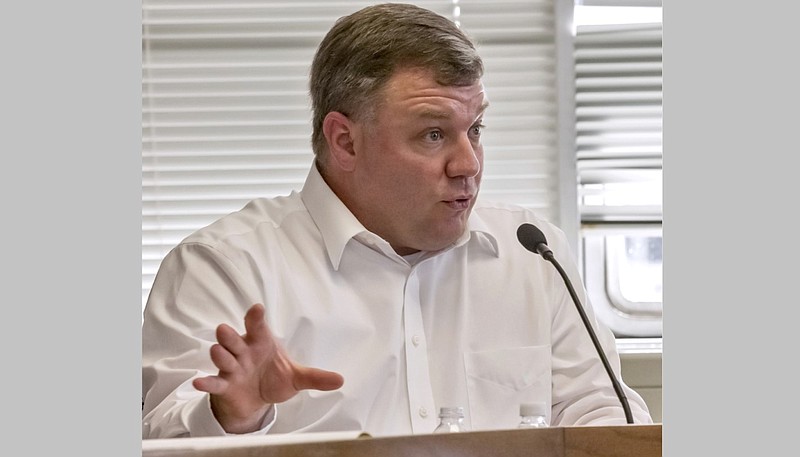Chris Howlett, director of the state's Employee Benefits Division, resigned this week, a spokeswoman for the state Department of Transformation and Shared Services confirmed.
The Employees Benefits Division manages the health insurance plans for public school and state employees.
Howlett tendered his verbal resignation Tuesday and did not give a reason, said department spokeswoman Alex Johnston.
Howlett wrote in an email dated Friday to the department's business operations director Jana Hiland that "After careful consideration, I'll be resigning as Director of EBD, effective of January, 20, 2021, and using leave until that point."
Asked whether department Secretary Amy Fecher asked for Howlett's resignation, Johnston in a written statement said "when answering questions on employment, it's our policy to only provide information on salary and basic employment."
Howlett could not be reached for comment by telephone late Thursday or Friday.
Howlett, whose salary was $133,437.20 a year, was hired as the state's Employee Benefits Division director on May 22, 2016, Johnston said.
At the time of his hiring, the Employee Benefits Division was part of the state Department of Finance and Administration. Department Secretary Larry Walther selected Howlett from two finalists submitted by the State and Public School Life and Health Insurance Board, a spokesman for the department said at that time. Howlett's predecessor, Bob Alexander, retired in January of 2016.
On July 1, 2019, the Employee Benefits Division became part of the newly created Department of Transformation and Shared Services under Gov. Asa Hutchinson's executive branch reorganization that merged 42 agencies into 15 that report to him.
Howlett previously was an account manager for Denver-based customer service company Teletech Holdings, a self-employed business consultant, worked for Arkansas Blue Cross and Blue Shield, and a subsidiary and project manager for the state Independent Choices Medicaid program.
His departure comes several weeks after the State and Public School Life and Health Insurance Board's Sept. 29 vote to rescind its Aug. 5 decision to discontinue pharmacy benefit coverage next year for about 13,800 Medicare-member retirees in the state employees' health insurance plan and force them to go through the Medicare Part D market.
Instead, the board opted to give those retirees the option of either continuing pharmacy benefit coverage through the state plan or purchasing that coverage through the Medicare Part D market.
If the Medicare-member retirees want to continue their pharmacy benefit coverage through the state plan next year, their health insurance premiums will increase by 5%, the 15-member board decided. If the retirees decide to go through Medicare Part D for their pharmacy benefit coverage, their state insurance premiums will be reduced by $25 a month under the board's decision.
The board's initial Aug. 5 decision drew sharp criticism from some retirees and state lawmakers.
That outcry led state officials to review suggestions from retirees and lawmakers to determine whether there were alternatives to discontinuing the pharmacy benefit coverage for Medicare-member retirees.
A working group of several retired state employees suggested giving the Medicare-member retires the option of either continuing with their state coverage or going through Medicare, Fecher has said.
At their Sept. 29 meeting, some board members said the board must consider all cost-savings options, and they want to make it clear that their decision doesn't necessarily mean the board won't consider the option of discontinuing state pharmacy benefit coverage for Medicare-member retirees for 2022.
